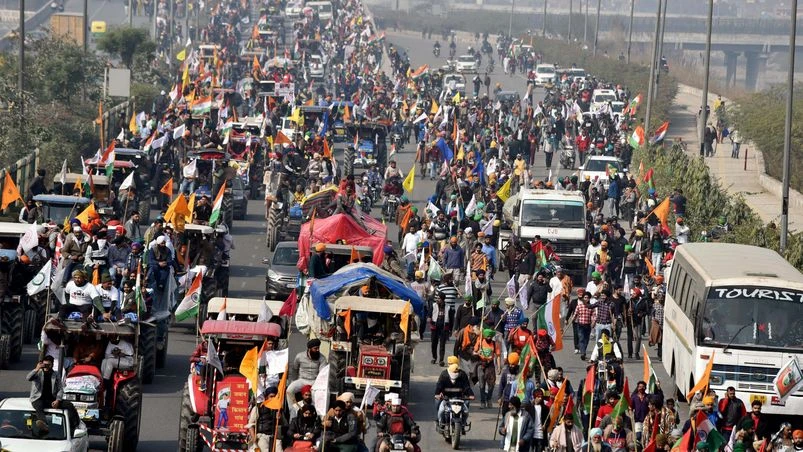 Repeal of farm laws: A setback or a step in the right direction?
Repeal of farm laws: A setback or a step in the right direction?
PM Modi announced scrapping of the controversial farm laws after persistent protests. The govt failed to onboard a section of farmers and caved in to political pressure. Let's analyse what comes next
Bhaswar KumarKrishna Veera Vanamali New Delhi
)
Protesting farmers during their Tractor rally against the new farm laws at Outer Ring Road near Mukarba Chowk in New Delhi
The decision came on the occasion of Gurpurab and a few months ahead of the Assembly elections in Uttar Pradesh and Punjab, the hotbed of the agitation.
The Bills were passed in September last year in Lok Sabha and Rajya Sabha by voice vote and farmers have alleged ever since that the laws were made to help big businesses. Since then, the government’s 11 rounds of discussion with farmer leaders did not yield any meaningful results.
So, what are these three contentious laws that triggered India’s longest ever farm protests?
The Farmers’ Produce Trade and Commerce (Promotion and Facilitation) Act gave an additional option for farmers and traders to sell and buy outside the designated mandis. States and commission agents feared loss of revenue if farm trade moved out of mandis, whereas farmers feared this might have eventually led to the end of the MSP-based procurement system.
The Farmers (Empowerment and Protection) Agreement on Price Assurance and Farm Services Act provided a framework for contract farming. Farmer organisations said the law was framed to suit big corporations and would weaken the negotiating power of farmers.
The Essential Commodities (Amendment) Act removed stockholding limits on certain agri-commodities except during extraordinary situations. The Opposition said the amendment would have benefited the hoarders, letting them dictate the terms, while at the same time hurting farmers and consumers.
Now that we understand the basic outline of the laws, let’s delve into the implications of their repeal.
While the protesting farmers might celebrate, a section of experts views this development as a setback for the farm sector.
Despite the general consensus that the agriculture sector is sorely in need of reforms, not all experts are of the view that the three farm Acts would have been the right solution.
This also might not be the death knell for agricultural reforms that certain sections believe it to be.
After the repeal of the agriculture Acts, government officials told Business Standard that the focus would now shift to convincing the states to adopt the model APMC laws, which were promulgated some years back.
However, this doesn’t mean that the Centre is off the hook as far as the protesting farmers are concerned.
On Friday, Bharatiya Kisan Union leader Rakesh Tikait said that the protest would be withdrawn only after the three contentious legislations were repealed in Parliament and legal guarantee on minimum support price, or MSP, for crops made.
The demand for MSP as a legal right could pose a huge challenge for the government.
Whatever your opinion might be about the farm laws, one thing is undeniable -- for now, the central government has lost the narrative on deep, structural reforms.
And, time alone will tell whether the states will take over and bring in the much-needed changes to the farm sector.
Watch Video
Also Read
Topics :farm crisisfarmers' protestLaw
Don't miss the most important news and views of the day. Get them on our Telegram channel
First Published: Nov 22 2021 | 8:15 AM IST

